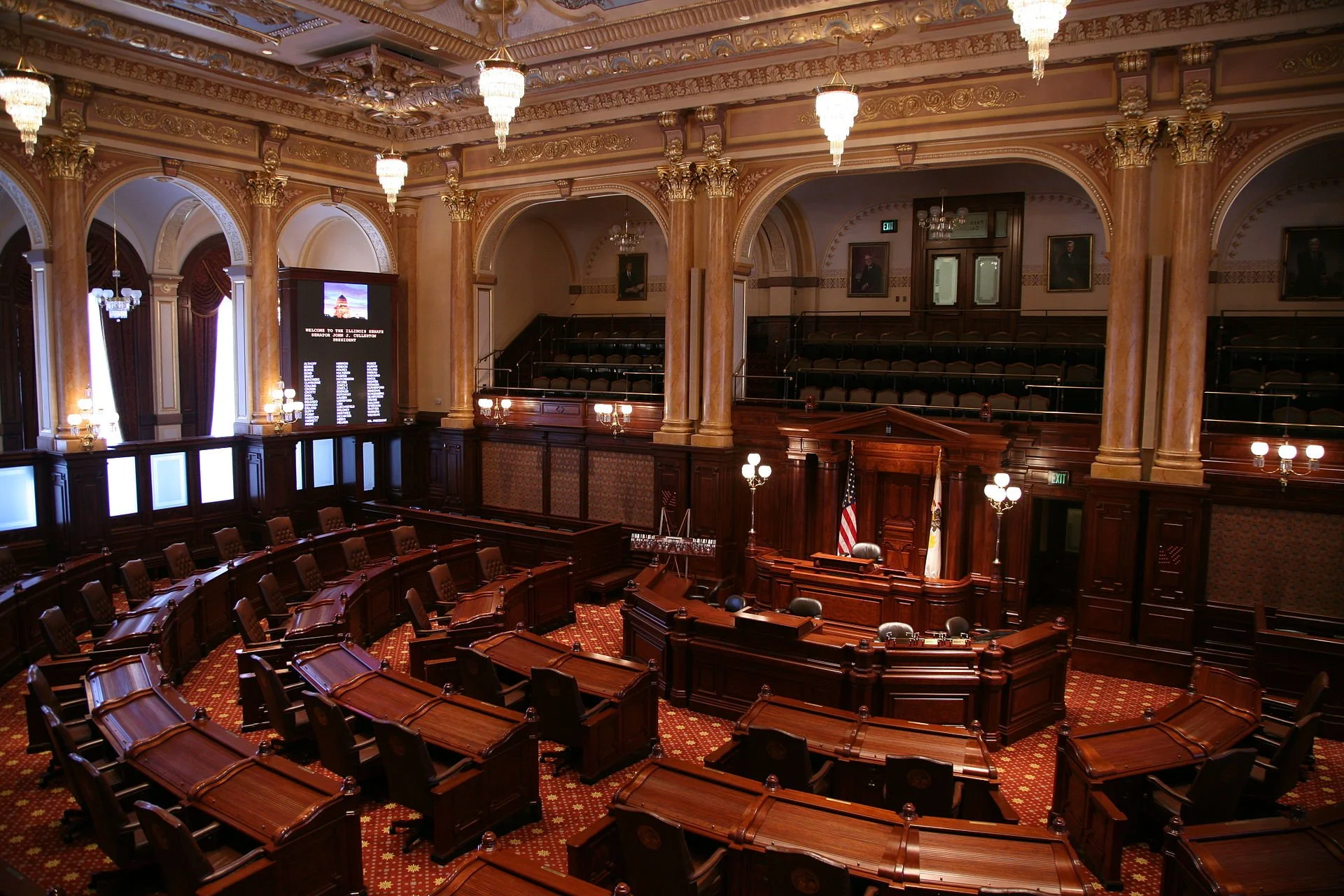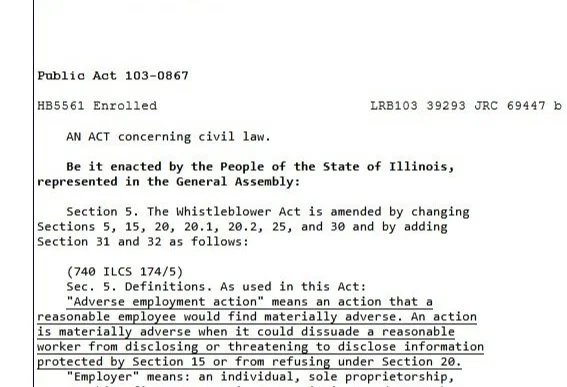Illinois Expands Whistleblower Protections Under Public Act 103-0867: Key Changes and Employer Implications
Photo courtesy of Daniel Schwen
On January 1, 2025, substantial amendments to the Illinois Whistleblower Act (IWA) took effect under Public Act 103-0867 (formerly HB 5561), dramatically expanding protections for whistleblowers in the state. The new law redefines key terms, broadens the scope of protected activity, and heightens potential exposure for employers—including a notable change in the definition of who qualifies as an "employee." Organizations operating in Illinois must closely review these amendments to mitigate risk and ensure compliance.
Key Amendments to the Illinois Whistleblower Act
1. Internal Disclosures Now Protected
Historically, the IWA only shielded employees who reported illegal conduct to government or law enforcement agencies. Under the new law, protections extend to employees who make disclosures internally—to supervisors, principal officers, or board members—provided they do so in good faith. This brings Illinois in line with several other states and reflects a broader national trend of protecting internal whistleblowing.
2. Expanded Definition of “Employee”
One of the most consequential updates is the revised definition of “employee.” While the previous version of the IWA clearly applied to traditional employees, the amended statute may now extend protections to certain independent contractors, depending on the facts of the relationship. This change is not expressly definitive but opens the door for courts or regulators to interpret the term “employee” more broadly in light of the statute’s remedial purpose.
Impact on Employers: This potential expansion means that companies may face liability for retaliatory conduct against individuals who are not on payroll but perform services under contract—such as consultants, freelancers, and gig workers. If these individuals report wrongdoing and face adverse consequences, employers could be subject to claims under the amended Act, even if the relationship is structured as non-employment.
To manage this risk, employers should consider evaluating all working relationships through the lens of whistleblower protection, regardless of classification, and ensure that independent contractors are included in compliance training and internal reporting policies.
3. Broader Definition of Retaliation
The amended IWA now defines “retaliatory action” to include not just tangible employment actions (like termination or demotion), but also any action that would dissuade a reasonable person from engaging in protected activity. This includes non-traditional forms of retaliation such as threats to damage reputation, interference with future employment, or contact with immigration authorities.
4. "Good Faith" Standard for Whistleblowers
The law protects employees who reasonably believe, in good faith, that their employer’s conduct violates a law, rule, or regulation—even if it is ultimately found to be lawful. This lower threshold of proof supports early reporting and shields whistleblowers from punishment for mistaken but earnest complaints.
5. Enhanced Remedies and Enforcement Tools
Employees who prevail under the amended Act may recover:
Reinstatement
Back pay with interest
Front pay
Liquidated damages up to $10,000
Civil penalties (also up to $10,000)
Attorneys’ fees and costs
Injunctive relief
In addition, the Illinois Attorney General now has independent enforcement authority, including the power to investigate and initiate civil actions to enforce the Act.
Implications for Employers
1. Expanded Liability to Nontraditional Workers
The shift in how “employee” may be interpreted increases employer exposure significantly. Companies that rely heavily on contractors, gig workers, or consultants must now treat these individuals as potential whistleblowers under the law and take steps to prevent retaliatory practices, intentional or otherwise.
2. Update Internal Policies and Agreements
All internal whistleblower, compliance, and anti-retaliation policies should be updated to:
Recognize internal complaints as protected conduct
Treat certain non-employee personnel as protected individuals
Specify reporting channels and protections clearly
Independent contractor agreements should also be reviewed to ensure they do not contain provisions that could be viewed as retaliatory or that discourage reporting of wrongdoing.
3. Train Supervisors and HR Personnel
Frontline managers and HR professionals must understand that retaliation is now more broadly defined, and internal complaints carry legal weight. All supervisory personnel should be trained on identifying and responding to whistleblower activity in a compliant and constructive way.
4. Maintain Strong Documentation
Employers retain the right to discipline workers—employees or contractors—for legitimate, non-retaliatory reasons. However, documentation is critical to demonstrate that adverse actions were based on performance, policy violations, or business needs, not protected activity.
Conclusion
Public Act 103-0867 represents a major shift in whistleblower protections in Illinois. By potentially expanding coverage to independent contractors, protecting internal reporting, and increasing penalties for retaliation, the law demands a proactive approach from employers. Reviewing classification practices, updating policies, and training leadership are essential steps in navigating this new legal landscape.



